| Short Stories for Children |
|---|
| www.studenthandouts.com ↣ eBooks and Texts ↣ Printable Short Stories and More (PDFs) |
 | 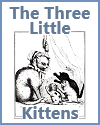 | 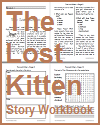 | 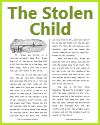 | 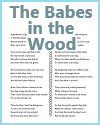 | ||||||
| The Little Match-Seller by Hans Christian Andersen | The Three Little Kittens by Eliza Lee Folen | The Lost Kitten | The Stolen Child | The Babes in the Wood |
 |  | 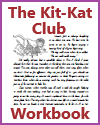 |  |  | ||||||
| The Selfish Giant by Oscar Wilde | When Peter Rabbit Went to School bu Linda Stevens Almond | The Kit-cat Club Workbook | The Little Old Woman Who Lived in a Shoe | A Christmas Carol by Charles Dickens |
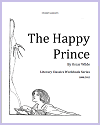 | 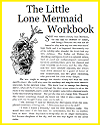 | 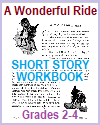 | 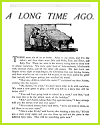 | |||||||
| The Emperor's New Clothes Workbook | The Happy Prince by Oscar Wilde | The Little Lone Mermaid Workbook | A Wonderful Ride | A Long Time Ago |
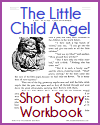 | 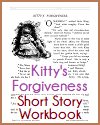 | |||||||||
| Little Child Angel | Kitty's Forgiveness |
|
Reading short stories can provide numerous benefits to elementary school children. Here are some of the advantages.
Language Development: Reading short stories exposes children to a variety of vocabulary, sentence structures, and language styles. This helps expand their language skills and enhances their understanding of how words and sentences work.  Comprehension Skills: Short stories often have clear beginnings, middles, and endings, making them ideal for teaching comprehension. Children can practice summarizing, predicting, and making connections between different parts of the story.
Comprehension Skills: Short stories often have clear beginnings, middles, and endings, making them ideal for teaching comprehension. Children can practice summarizing, predicting, and making connections between different parts of the story. Critical Thinking: Analyzing characters, plots, and themes in short stories encourages critical thinking. Children learn to evaluate, compare, and contrast different aspects of a story. Cultural Awareness: Short stories can introduce children to different cultures, traditions, and perspectives. They can learn about people and places they may not encounter in their everyday lives, fostering cultural awareness and empathy. Imagination and Creativity: Short stories often feature imaginative plots and characters. Reading them can stimulate children's creativity and encourage them to create their own stories or artwork inspired by what they've read. Attention Span: Reading short stories helps improve attention span and focus. Children learn to engage with a text for an extended period, which is a valuable skill for academic success. Reading Fluency: Regular practice with short stories can enhance reading fluency. As children become more proficient readers, they can read with greater ease and expressiveness. Motivation to Read: Short stories can be captivating and entertaining, making reading an enjoyable activity. Encouraging a love for reading in elementary school can have lifelong benefits. Literary Elements: Children can learn about literary elements such as plot, character development, setting, and conflict through short stories. These concepts serve as building blocks for more advanced literary analysis. Social and Emotional Development: Many short stories feature relatable characters and situations. Reading these stories can help children explore their emotions and develop social and emotional intelligence. Enhanced Writing Skills: Exposure to well-written short stories can improve a child's writing skills. They can apply what they've learned about storytelling and language to their own writing assignments. Family Bonding: Reading short stories together can be a wonderful bonding activity for families. Parents or caregivers can read to their children, fostering a love for books and shared experiences. Diverse Themes: Short stories cover a wide range of themes and topics, allowing children to explore different subjects and gain a deeper understanding of the world around them. Preparation for Longer Works: Short stories serve as a stepping stone to longer works of literature. They help children develop the skills and confidence needed to tackle more complex novels as they advance in their reading abilities. Problem-Solving: Many short stories present characters facing challenges and dilemmas. Children can analyze how characters solve problems, which can inspire problem-solving skills in real-life situations. Incorporating short stories into elementary school curricula or reading routines at home can enrich a child's educational experience and nurture a lifelong appreciation for literature and storytelling. |
| www.studenthandouts.com ↣ eBooks and Texts ↣ Printable Short Stories and More (PDFs) |














































